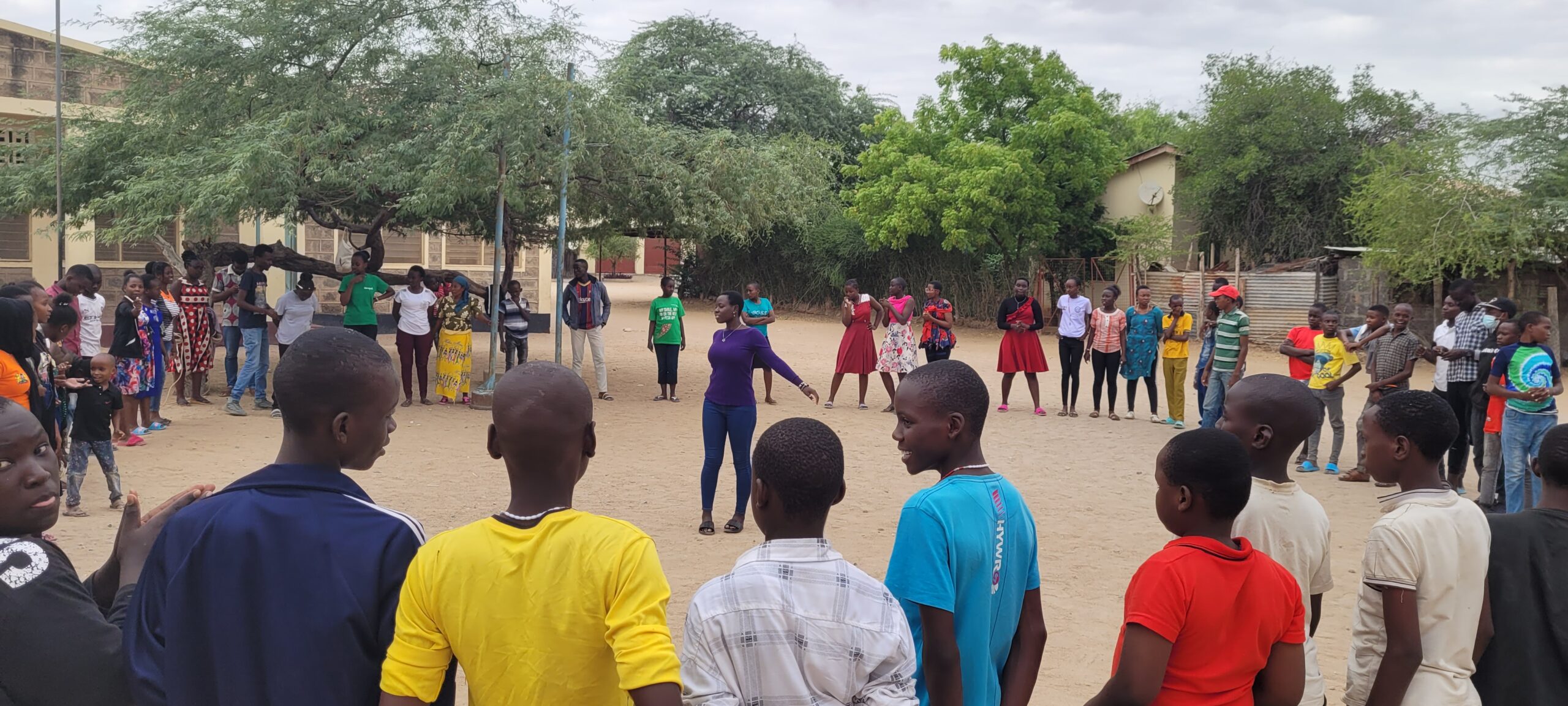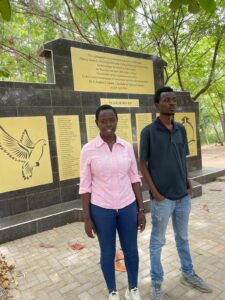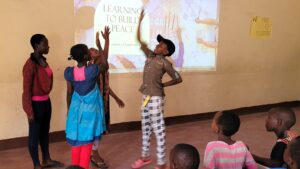
Forgiveness is an opportunity for growth
Works of mercy in the lives of young people
Anger, resentment, desire for revenge are almost inevitable feelings in situations where we have experienced injustice, violence, offenses and exclusion. However, they fail to soothe our pain and heal the wounds caused by negative relationships. Forgiveness has within it the power to repair; it is an act of freedom and growth that makes us strong people, capable of building relationships of fraternity and peace. We discuss this in this interview with Stephen Thuo and Sarah Otieno, two young people from Kenya.

What do you think are the consequences of the lack of forgiveness in the lives of the youth and teens you know?
I am Sarah, a young student from Kenya. In my opinion, many of the problems experienced by young people in Kenya today can be linked to a lack of forgiveness. One of these problems is certainly the increase in the number of street children. Very often, many boys and girls choose to live on the street because they have done something for which they cannot ask forgiveness. The solution for them is to decide to run away. Or perhaps they decide not to forgive their family members for what they have suffered at home. I have had many contacts with some street children in my city of study. Saying hello to them, stopping often to talk with them to establish friendship, they shared the reasons that led them to live a difficult life alone, without means and points of reference. Thus, I understood that the main reason they ran away was their inability to forgive or ask for forgiveness. Some situations are very dramatic, and no one can judge and remain indifferent. For example, some have confided in me how much violence they have experienced in their families, so they find more peace in the street than in their families. Others tell how they were abused by their relatives after their parents passed away. In my opinion, an important way to help them is to promote the works of mercy and try to teach children and families how to forgive, in the spirit of mercy that Jesus taught us.
Forgiveness is not easy. What pathways could help young people strengthen their capacity for reconciliation and forgiveness?
There is a risk for us young people in Kenya to cling to negative feelings that stem from prejudice or impulses of revenge. I am Stephen and personally grew up with these negative feelings toward the Muslim community, this is because where I lived people used to believe that Muslims were the ones who organized most of the terrorist attacks. I was very prejudiced against this community and I could not even interact with them. But recently I had an amazing experience and visited a community in Garissa, a town a few kilometers from the Somali border. That changed my attitude, my heart, and my mind. What struck us most is the effort Christians in that community are making to forgive and promote dialogue and mutual understanding. In 2016 an attack by a Muslim extremist group led to the death of many Christian students at the university. Visiting the university now and talking with Christian and Muslim students, I have seen that there is a relationship of fraternity, cooperation, and respect between them. The Catholic Diocese of Garissa is also engaged in a process of reconciliation and collaboration with the Somali Muslim community. The act of violence by a few has not stopped the mercy of many and has prompted a strengthening of the relationship between different religious groups and ethnicities in the city. With Empowered2Care, a project of the Focolar Movement that aims to raise awareness among youth and teens to take care of their communities, we held a meeting that involved teens in the community. This brought joy to many hearts because, despite the efforts made, it was the first time that teenagers were actively involved and sensitized, to make them convinced peacemakers. In my opinion, the experience was impactful as it softened and prepared the hearts of the youth for a brighter future in this part of Kenya. The adolescents who participated declared themselves ready to recognize their fellows who are different in creed or ethnicity, to take the first step in building relationships of friendship and understanding. Aware that to achieve real peace, there is a need to start a peace process, made up of daily gestures of respect. For me it was an incredible experience, it allowed me to interact with the Muslim community there and changed my perception toward Muslims who became like brothers and sisters to me.

What impact do you think forgiveness and peace education can have on the future of your country?
Sarah: It is said that young people are the future, so if we create a spirit of revenge among young people, what will tomorrow look like? Forgiveness, a gift of God’s mercy, can be of great impact for us young people in Kenya and we believe it can even change the whole world, as forgiveness is not only needed here but also in other parts of the world. It is important to ensure peace in our countries, respecting and acknowledging the wounds of the past but being open to dialogue, to better understanding and better acting in the future.
How necessary is it to learn to forgive? How can forgiveness positively affect people’s lives?
Stephen: Almost everyone has been wronged by someone. It may be a former colleague, a friend, or a family member. But clinging to these negative feelings can seriously harm your health. Forgiving a person who has wronged us is never easy, but dwelling on those events and reliving them over and over again can fill the mind with negative thoughts and pent-up anger. When you learn to forgive, you are no longer trapped by past actions and can finally feel your freedom and ability to build fraternal relationships. Jesus himself taught us how to forgive when he died for our sins. He showed us that in forgiving we should be ready even to give our lives for each other. Therefore, forgiveness is a very powerful work of mercy.
